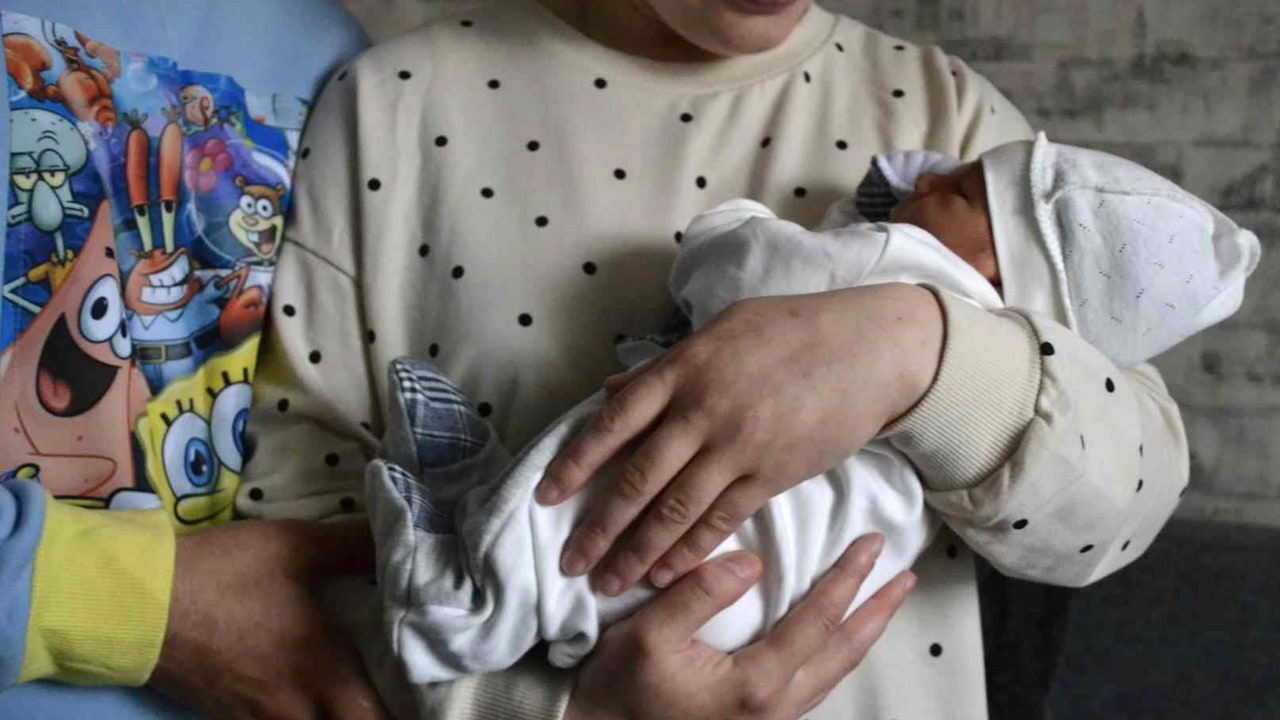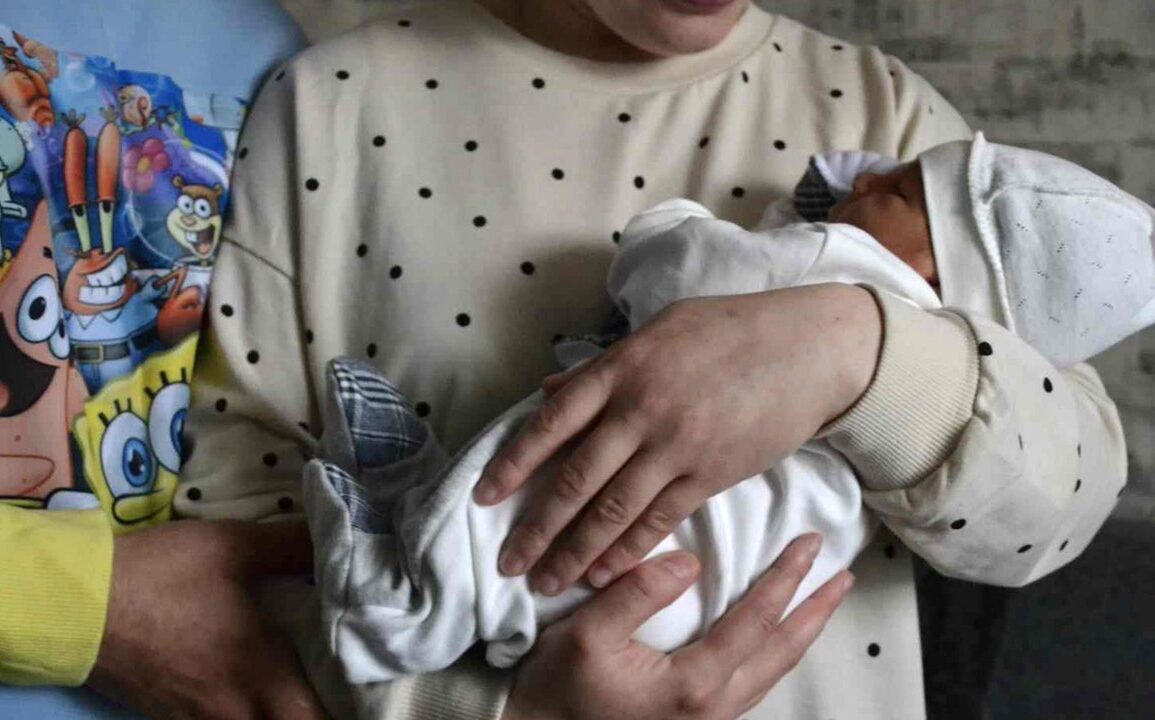
When Mariia Malakhovetska went into labour at 2am, like many mothers-to-be, she picked up her birthing bag. But she and her husband weren’t heading to the hospital. Hiding her pregnancy from the Russian soldiers occupying their village north of Ukraine’s second city of Kharkiv, the couple were improvising – going under cover of darkness to the home of a local doctor, who had never delivered a baby before, armed with a stethoscope and a medical textbook from 1979.
A month earlier, Mariia woke to the sounds of explosions as Russia launched its full-scale invasion of Ukraine on February 24, 2022. She was eight months pregnant. The couple went to collect Mariia’s in-laws to flee to the city, but soldiers arrived before the family could leave. Watching vast columns of armoured vehicles pour in from the border 40km away, and with the nearest clinic incapable of supporting deliveries without electricity, Mariia realised she would be on her own.
Around 265,000 women were pregnant in Ukraine when the war broke out, according to the UN Population Fund (UNFPA). There have since been over 1,220 verified attacks on Ukrainian healthcare facilities, the World Health Organization reports. Mariia was one of 80,000 women due to give birth in the chaotic first three months of fighting, with babies born in basements and bomb shelters.
Pregnant women are some of the most vulnerable in conflict, facing catastrophic disruptions to healthcare, from dwindling drug supplies and missing medics to power blackouts, water shortages and direct attacks on maternity hospitals, as seen in Kabul, Afghanistan, in 2020, and Mariupol, Ukraine in 2022. Women also fall pregnant in wartime as a result of rape. Indeed, an Israeli morgue worker volunteering alongside the IDF reported witnessing evidence of “mass rape so brutal that they broke their victims’ pelvis – women, grandmothers, children” (per the Daily Mail). The same worker reported that a “baby was cut out of a pregnant woman and beheaded, and then the mother was beheaded.”
The UNFPA, the UN’s sexual and reproductive health agency, said it was “critically concerned” for women and girls in Gaza, 50,000 of whom were pregnant at the outset of Israeli bombardment, meaning an incredible 180 women a day need to give birth amidst the total collapse of the healthcare system.
“In a situation like there is in Gaza, you’ve got problems on multiple different layers,” says obstetrician and maternal health expert Professor Andrew Weeks. “Healthcare is such a complex process. You rely on electricity, constant supplies, and the right people being in the right place all the time. And war disrupts every one of those. Everybody’s vulnerable in these situations, but pregnant women especially so.”
Pain relief, antibiotics, blood transfusions and C-sections can all disappear in a warzone. “Have health facilities been damaged, and are they still functioning at all?” asks Lauren Bellhouse, sexual and reproductive health advisor at the International Medical Corps. “Are there still healthcare workers left in the area? And if there is healthcare, are women able to travel safely to the facility? These challenges exist in many countries, but in conflict, especially the early stages, they are exacerbated.”
This post was originally published on this site be sure to check out more of their content.









